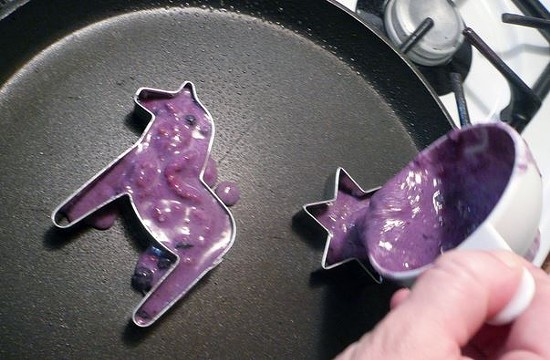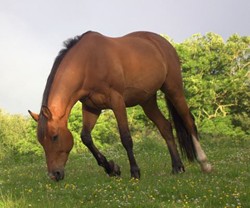David Rains wants to sell horse meat in Missouri. He says he's ready to start, having already modified his processing plant in Gallatin and consulted with the U.S. Department of Agriculture and industry experts from Canada.
He'll know by January 27, the deadline for officials to respond to his request to include equine slaughter within a general meat processing permit.
"The federal government agrees with us," says Rains, who is pushing the state's Department of Natural Resources to allow him to start slaughtering horses and distributing their meat for human consumption as well as animal feed.
See also: Judge Orders Return Of 252 Animals: "No Credible Evidence" of Abuse
The DNR actually awarded Rains' facility, Rains Natural Meats, with a general meat processing permit in November. However, the permit stated that the plant's waste water lagoon "is only authorized to process non-equine species of animals."
Without a way to dispose of the waste, that decision effectively bars Rains from slaughtering horses.
Rains tells Daily RFT that he had never heard of DNR issuing general permit that excluded a specific species, especially since the lagoon has passed all its inspections. He thinks politics is involved.
"The governor is behind making all these decisions," he says. "If he doesn't go with the science and stays with the special interest groups' political wants, then I'm really concerned he doesn't care about agriculture in Missouri."
DNR spokeswoman Gena Terlizzi says the department is closely following state regulations and that politics is not a factor.
After getting denied, Rains sued the DNR at the agency level. Front Range Equine Rescue, a horse advocacy organization, filed motions in that legal actions supporting the department, arguing that a lifetime of drugs and medications makes disposing horse carcasses a potential environmental danger.
"Horses are not raised in a regulated industry, and are given drugs and substances that can't be monitored," says FRER attorney Bruce Wagman, who argues that simply giving the horses a drug test prior to slaughter isn't enough since the the test only detects a small proportion of the drugs in a horse's body.
See also: Beast Feast: Gut Check Dines on Squirrel and Raccoon in Style
There are other problems with horse slaughter which should push the state to keep Rains' plant from equine processing, according to Wagman.
"Horses cannot go to a slaughter the way other animals do," he says, "There's an inability to stun them easily because of their intense fight or flight response. There won't be control in the slaughterhouses."

Rains contends that his plant is humane, safe and will not produce "any pollution" as a result of horse meat processing. He sees the involvement of groups like FRER and the Humane Society of United States as a sign that his opponents are willing to "ignore the science" in favor of pushing a "vegan agenda."
"They are trying to take all of the meat out of America, and they are going after every segment of the livestock industry one piece at a time," he says.
Congress effectively banned horse slaughter in 2006 when it barred the USDA from using federal funds to inspect any meat processing plants that slaughter horses -- and no USDA inspection meant no legal distribution. But with the help of a key vote by Missouri Senator Roy Blunt, that ban was lifted in 2011.
"It's a legislative issue," says Wagman, who says new laws need to be passed that unambiguously ban horse slaughter in the U.S.
"If we're not going to slaughter cats and dogs in this country, then we shouldn't be doing it for horses."
Updated 4:00 p.m.: Daily RFT reached out to the Humane Society of Missouri for comment. Here's a statement from spokeswoman Jeane Jae:
Because horses hold an iconic place in our nation's history and are treasured for their beauty, majesty and companionship, the Humane Society of Missouri believes they deserve to be cared for, not brutally killed and shipped to foreign countries for consumption. HSMO supports all efforts to halt and ultimately prohibit horse slaughter in Missouri and the United States. We have and will continue to urge our constituents to support the SAFE Act (Safeguard American Food Exports Act -- H.R. 1094/S. 541) now pending in the U.S. Congress and to work with the Missouri Alliance for Animal Legislation to block horse slaughter in Missouri.
Follow Danny Wicentowski on Twitter at @D_Towski. E-mail the author at [email protected]







